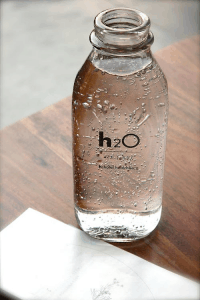Globally, the mineral water industry has experienced rapid growth. In response to the ever-increasing demand for clean drinking water and health awareness, the mineral water market has grown significantly in recent years. Setting up a mineral water plant can be lucrative but requires careful planning and investment. This blog will discuss choosing the right mineral water plant for your business.
1. Conduct market research
Before investing in a mineral water plant, it is essential to conduct market research. This research will help you determine the demand for mineral water in your area and the competition. It would be helpful if you also studied the trends and consumer preferences in the market. This will help you identify the features and benefits that your product should have to stand out from the competition.
2. Determine the plant capacity
The next step is to determine the capacity of the mineral water plant you need to set up. The capacity will depend on the demand for mineral water in your area, the size of your target market, and your budget. You must consider the number of bottles you want to produce daily or weekly and the machinery required. The plant’s capacity will also affect the size of the land and the amount of raw material and labor required.
3. Choose the right location
Your mineral water plant’s location is crucial to your business’s success. It would be beneficial if you choose a location close to the source of raw material and has access to transportation. The plant should also be close to your target market to reduce transportation costs. Additionally, the location should have a reliable supply of electricity and water.
4. Decide on the type of plant
There are two types of mineral water plants: packaged drinking water plants and bottled mineral water plants. Packaged drinking water is purified water that is packaged in pouches or sachets. These plants are smaller in size and have lower capacity. On the other hand, bottled mineral water plants produce water fortified with minerals and sold in bottles. The capacity and size of these plants are greater. Your budget and target market should determine the type of plant you choose.
5. Choose the right machinery
Types of machinery used in mineral water plants are crucial to the quality and quantity of the water produced. It would help if you chose efficient, reliable, and easy-to-maintain machinery. Some essential machinery required in a mineral water plant includes a water treatment plant, storage tanks, filling machines, labeling machines, and packaging machines. You should also consider the power requirements of the machinery and ensure that your location has adequate electricity supply.

6. Determine the cost
The price of setting up a mineral water plant can vary depending on the capacity, machinery, and location. You must prepare a detailed project report outlining the cost of land, machinery, raw material, labor, and other expenses. It would be helpful if you also considered the cost of obtaining licenses and permits, as well as the cost of marketing and advertising. Once you have determined the cost, you can decide on the funding sources, such as bank loans, venture capital, or personal savings.
7. Obtain licenses and permits
Setting up a mineral water plant requires obtaining several licenses and permits from the government. These include a No Objection Certificate (NOC) from the State Pollution Control Board, a water testing report from a laboratory approved by the Bureau of Indian Standards (BIS), and a license to use the BIS mark. You may also need other licenses like trade, fire, and food safety. Ensuring you have obtained all the required licensing and permits is essential.
8. Hire skilled personnel
A mineral water plant requires skilled personnel to operate and maintain the machinery and handle the packaging and distribution of the product. You should hire personnel with experience in the water treatment industry, machinery operations, and packaging and distribution. You may also need to provide training for your personnel to ensure that they understand the quality standards and safety regulations.
9. Ensure quality control
Quality control is essential in a mineral water plant to ensure that the water produced meets the standards set by regulatory bodies. You need to conduct regular testing of the water to ensure that it’s free from contaminants and meets the chemical and microbiological parameters set by the BIS. You should also maintain a record of the test results and ensure that the production process adheres to the quality control procedures.
10. Develop a marketing strategy
A successful mineral water plant requires a robust marketing strategy to promote the product and attract customers. Research your target market and understand their preferences and purchasing behavior. You should also identify the unique selling points of your product, such as the source of water, mineral content, and packaging. Different marketing channels, such as social media, print and electronic media, and outdoor advertising, can be used to promote your product.
Bottom line
In conclusion, setting up a mineral water plant can be a profitable business opportunity if you plan and execute it carefully. You need to conduct market research, determine the plant capacity, choose the right location, decide on the type of plant, choose the right machinery, determine the cost, obtain licenses, and permits, hire skilled personnel, ensure quality control, and develop a marketing strategy. With these steps, you can set up a successful mineral water plant that meets your area’s demand for clean drinking water.
 Request a Quote
Request a Quote
